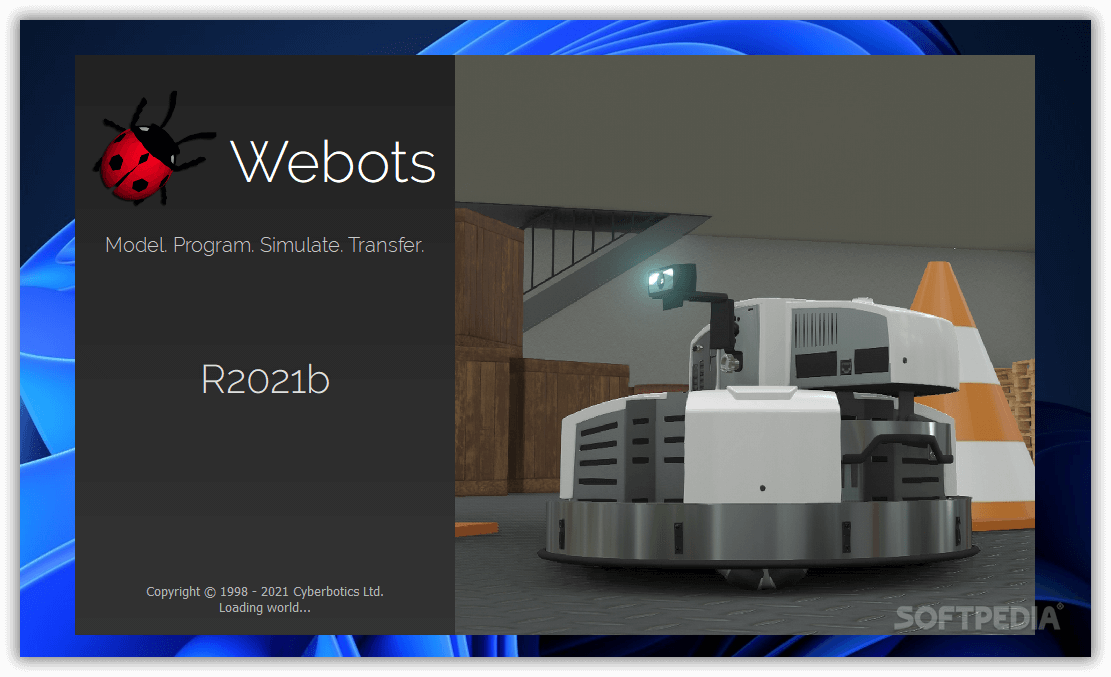


WEBOTS SERIAL CODE
WEBOTS SERIAL SIMULATOR
Building a Light Weight Custom Simulator.Setting up WiFi hotspot at the boot up for Linux devices.YOLOv5 Training and Deployment on NVIDIA Jetson Platforms.YOLO Integration with ROS and Running with CUDA GPU.Python libraries for Reinforcement Learning.Model Predictive Control Introduction and Setup.MoveIt Motion Planning and HEBI Actuator Setup and Integration.Pure Pursuit Controller for Skid Steering.Point Cloud Library, 3D Sensors and Applications.Tracking vehicles using a static traffic camera.

The obtained results of the optimal fuzzy PD controller based on the inverse dynamics are compared to the outcomes of the PD controller, and it is illustrated that the optimal fuzzy PD controller shows better controlling performance in comparison with other controllers. Hence, in order to control the dynamics of the robot manipulator, inverse dynamics and a fuzzy PD controller optimized via particle swarm optimization are used in this research study. Furthermore, the Lagrange method is utilized to obtain the dynamic equations of motion. The Denavit-Hartenberg approach and the Jacobi method for each of the arms of the robot are employed in order to gain the kinematic equations. This paper endeavors to contribute to the field of optimal control via presenting an optimal fuzzy Proportional Derivative (PD) controller for a RPP (Revolute-Prismatic-Prismatic) robot manipulator based on particle swarm optimization and inverse dynamics. It is now the main commercial product available from Cyberbotics Ltd. WebotsTM has been developed in collaboration with the Swiss Federal Institute of Technology in Lausanne, thoroughly tested, well documented and continuously maintained for over 7 years. You can program these robots using your favorite development environment, simulate them and optionally transfer the resulting programs onto your real robots. You can equip each robot with a large number of available sensors and actuators. For each object, you can define a number of properties, such as shape, color, texture, mass, friction, etc. WebotsTM lets you define and modify a complete mobile robotics setup, even several different robots sharing the same environment. The provided robot libraries enable you to transfer your control programs to several commercially available real mobile robots.
WEBOTS SERIAL SOFTWARE
develops WebotsTM, a mobile robotics simulation software that provides you with a rapid prototyping environment for modelling, programming and simulating mobile robots. It is also demonstrated that sensory feedback could potentially play a significant role in the generation of standing waves during walking.Ĭyberbotics Ltd. Results show that configurations which com- bine global couplings from limb oscillators to body oscilla- tors, as well as inter-limb couplings between fore- and hind- limbs come closest to salamander locomotion data. We were in particular inter- ested in (1) the ability of the controller to produce a travel- ing wave along the body for swimming and a standing wave for walking, and (2) the role of sensory feedback in shaping the patterns. Since the exact organization of the salaman- der's locomotor circuits is currently unknown, we used the numerical simulations to investigate which type of coupled- oscillator configurations could best reproduce some key as- pects of salamander locomotion. Using nu- merical simulations of both the controller and of the body, we investigated different systems of coupled oscillators that can produce the typical swimming and walking gaits of the salamander. This article presents a model of the salamander's loco- motion controller based on nonlinear oscillators.


 0 kommentar(er)
0 kommentar(er)
